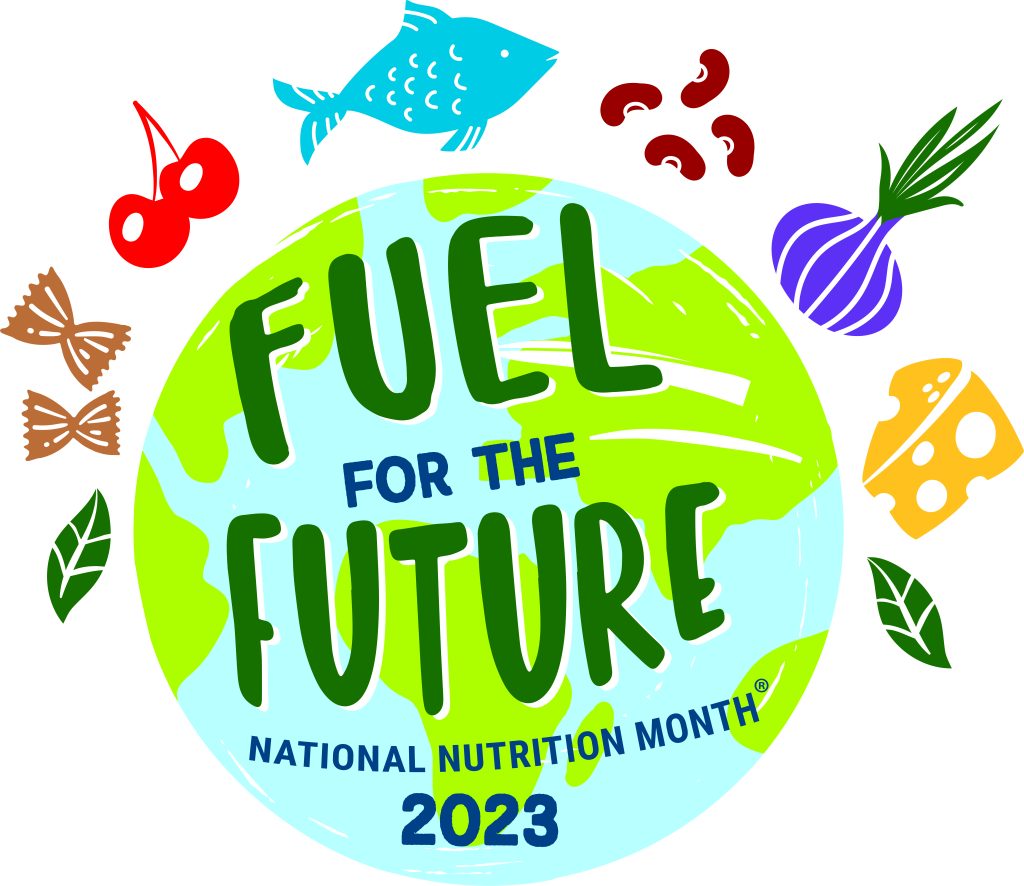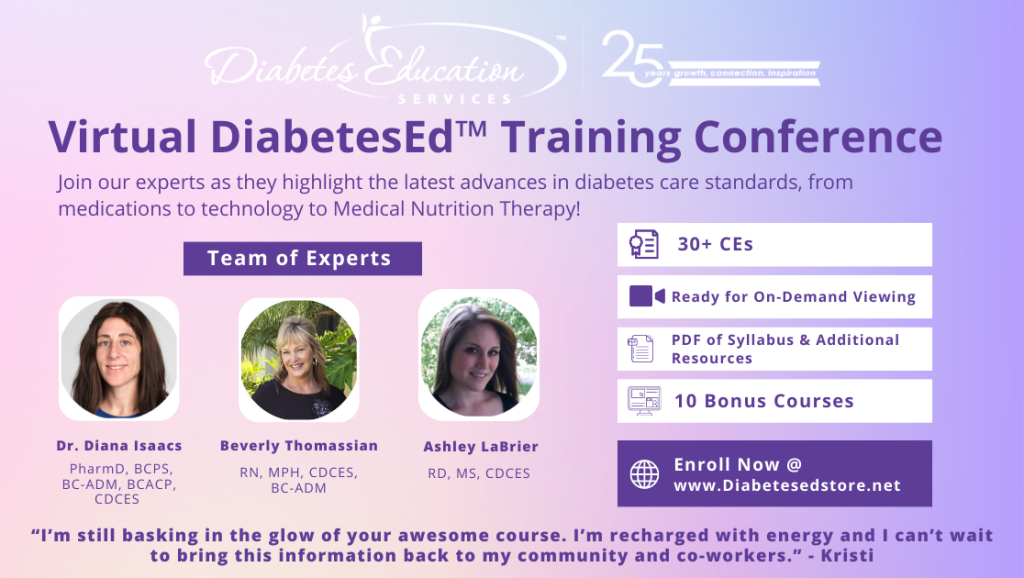
The Academy of Dietetics and Nutrition is kicking off National Nutrition Month with a new slogan, “Fuel for the Future”.
They are shining a light on considering food consumption through a lens of sustainability. What are some tasty ways to nourish ourselves during every phase of life and protect the environment?
Registered Dietitian Nutritionists are experts in addressing this question. But how can all diabetes care and education specialist help support healthy habits that are sustainable and celebrate the individual’s unique needs?
Strategies to eat with the environment in mind
Plant-Based Meals and Snacks
A great way to get started is to help people learn how to enjoy more plant-based meals and snacks and decrease meat intake. Both the American Diabetes Association and the American Academy of Endocrinologists highly recommend plant-based nutrition for people with diabetes. Not only are plant-based foods packed full of nutrients, protein, and fiber, they generally confer fewer calories and decrease inflammation. Another added bonus is that they have less impact on planetary health and are more sustainable.
Plant-based eating resources including recipes below. Feel free to copy and share!
- Plant-Based Eating Newsletter and Recipes »
- Plant-Based Cooking – Recipes »
- Plant-based diet may benefit patients with diabetes – Smart Brief
- Vegetarian Starter Kit » an easy-to-read and colorful handout for patients interested in learning more about a vegetarian diet. Published by the Physicians Committee for Responsible Medicine.
Sustainable Eating and Decreasing Food Waste
About one-third of all food is tossed into the trash, filling up landfills and increasing methane gas release. Some strategies to decrease waste include finding creative ways to use leftovers rather than tossing them and composting uneaten foods. Encouraging people to buy foods in season and shop locally when possible can make a big impact on the environment while reducing food costs. Another idea is to start a container or backyard garden to grow food at home.
Resources on decreasing food waste and increasing sustainable eating:
- Sustainable Eating article by the Academy of Nutrition and Dietetics
- Food Dates Lead to Waste- Taste Before Tossing
- 5 tips for Sustainable Eating article by Harvard School of Public Health
- Sustainable Eating Resource Hub by Food Print
- Produce from Purchase to Plate – Steps to Reduce Food Waste article by the Academy of Nutrition and Dietetics
- Local Farmer’s Market Finder by Local Harvest – find Community Supported Agriculture farmers in your area.
To stretch dollars, use a grocery list and shop sales when purchasing food. See what foods are at home before purchasing more.
How many times have you returned from shopping, only to discover you already had that bag of carrots tucked away in the back of the refrigerator? But by taking an inventory of what we have and creating a list of what is needed, we can all reduce waste. When shopping, encourage people to start with the outside isles, which generally display healthier foods while avoiding the center and display isles. Incorporating favorite cultural foods into the shopping list and eating foods in various forms including fresh, frozen, canned, and dried, can add to the variety and affordability.
Practice gratitude for your body by giving it the fuel it needs.
Choosing foods that nourish our body and expressing gratitude for the labor and work that went into harvesting and preparing our food, can improve our relationship with food. Making meals at home, by ourselves or with people we live with, can create connections and joy. By learning cooking and meal preparation skills, people have the opportunity to try new foods and enjoy flavors from around the world. Taking time to enjoy our food by mindfully eating and creating long lasting memories with friends and family is a great place to get started on this journey to tasty and sustainable eating.
Happy Nutrition Month everyone and thank you for considering these small changes, which when added up, make a big difference.
Visit the CDR Website for more great ideas and to access a bounty of free resources.
Want to learn more about Medical Nutrition Therapy?
You are invited to join our Virtual Conference with our Nutrition expert speaker, Ashley LaBrier, MS, RD, CDCES, who will be providing a half-day presentation on this important topic!

Ashley LaBrier, MS, RD, CDES, is an innovator in the field of diabetes, nutrition, and technology. Ashley is a consultant and the Diabetes Education Program Coordinator at the Salinas Valley Medical Clinic’s Diabetes & Endocrine Center.
Ms. LaBrier is passionate about providing person-centered education to empower those who live with diabetes. Having been diagnosed with type 1 diabetes herself nearly 20 years ago, she combines her professional knowledge with personal experience and understanding.
Virtual DiabetesEd Training Conference

Whether you are new to diabetes or a seasoned expert, you’ll benefit from this virtual conference with the latest research plus critical content that you can immediately apply to your clinical practice.
If you are seeking a state-of-the-art review of current diabetes care, this course is for you. Our team has been fine-tuning this course for over fifteen years, and we know what you need. This program can also be a great addition to your CDCES or BC-ADM exam study plan.
Group discounts are available!*
Download Course Flyer | Download Schedule
All hours earned count toward your CDCES Accreditation Information
Sign up for Diabetes Blog Bytes – we post one daily Blog Byte from Monday to Friday. And of course, Tuesday is our Question of the Week. It’s Informative and FREE! Sign up below!
The use of DES products does not guarantee the successful passage of the CDCES exam. CBDCE does not endorse any preparatory or review materials for the CDCES exam, except for those published by CBDCE.









